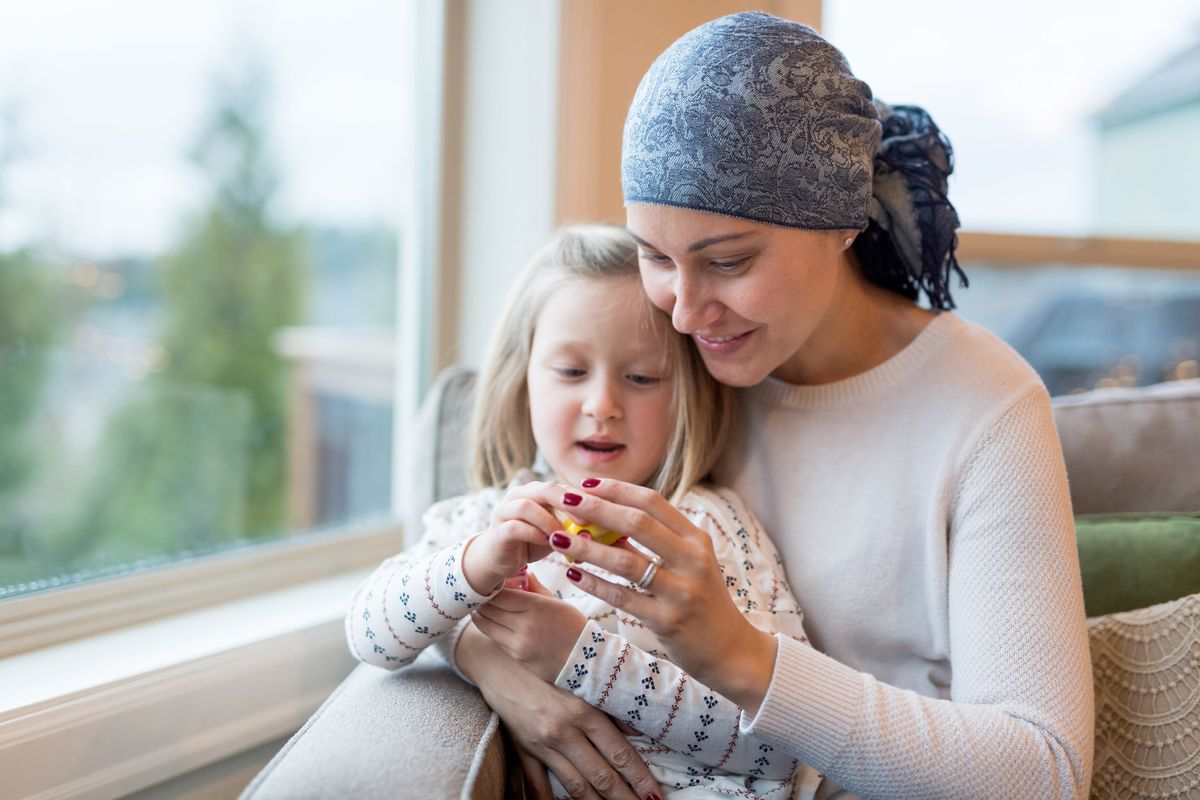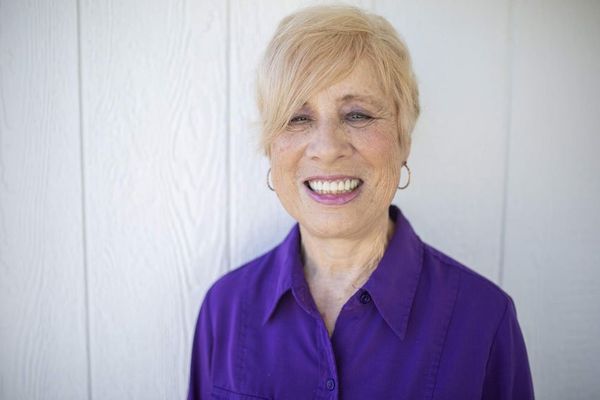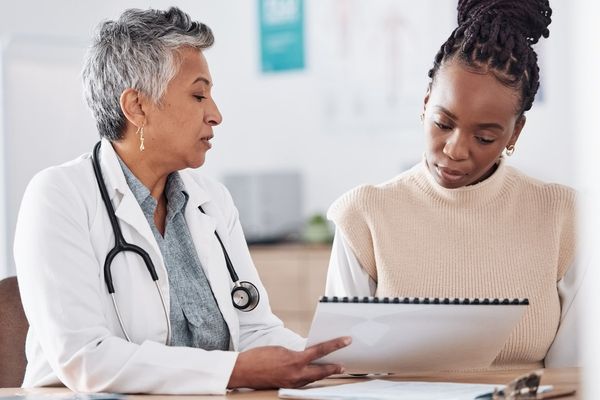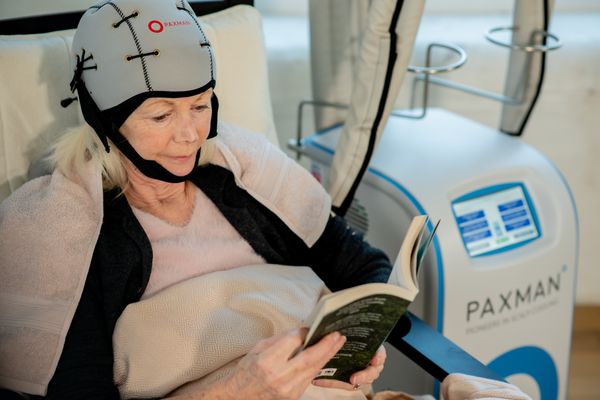You've probably heard of lymphoma, the most common type of blood cancer, and you've likely heard of non-Hodgkin lymphoma — but have you heard of follicular lymphoma(FL)? It's a slow-growing, typically incurable blood cancer and the most common form of indolent non-Hodgkin lymphoma, accounting for about 20% of all cases in the United States. FL can be diagnosed at any age but is more common among people in their mid-50s and 60s.
FL impacts the lymphatic system, which is a system of lymph nodes found throughout the body. Common symptoms of FL include swollen lymph nodes (hard, painless lumps) under the arms, in the neck and/or in the abdomen or groin, as well as fatigue, weight loss and shortness of breath. Other common symptoms may also include fever, chills or enlarging and persistent lumps. In some cases, patients may not have obvious symptoms at diagnosis.
Subtle symptoms are common for many FL patients, including Juliana, who was diagnosed in 2011 at the age of 26, while studying to be a nurse practitioner. Her nursing class was learning to examine lymph nodes, and her classmate noticed she had a large lymph node in her neck. Juliana sought out a lymphoma specialist in Los Angeles, near her home in Southern California, who confirmed her diagnosis and helped Juliana map out a treatment plan.
"I remember it so clearly because I felt physically well but was emotionally terrified," Juliana explained. "When my oncologist told me I had follicular lymphoma and that there was no cure, at that moment, I felt like I couldn't take in any other information. I wondered how this could be happening and what it meant for my life."
Lack of cure doesn’t mean no hope
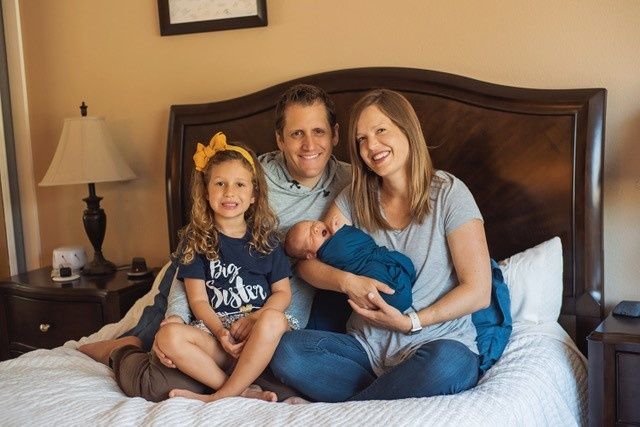
Juliana and her family
While there is typically no cure for FL, the good news is that people with FL may live for many years. Working with a doctor to determine the best treatment approach, including disease management and monitoring, can help many people lead relatively normal lives.
FL is characterized by cycles of remission and relapse, meaning that people may experience long periods of remission, which may last for years after their initial treatment, before their disease returns (relapses). Follicular lymphoma also may become resistant to previous treatments when it relapses or progresses (this is called refractory FL), because the cancer may become more aggressive and/or difficult to treat.
Given the mostly subtle symptoms of FL, a relapse may be difficult to detect without routine check-ins with a health care provider. To help ensure the best possible health outcomes, it's important for people with FL to have consistent check-ins with their health care provider and not forego care, even during the COVID-19 pandemic. Telemedicine appointments may be an option but should not fully replace in-person appointments.
"Since the start of the pandemic, I've had good experiences with telehealth, but if you've been worried about something, you shouldn't delay seeing your doctor face to face. If you're concerned about the coronavirus, you should call your doctor, nurse or clinic and ask what safety precautions they have in place and what you can expect when you get there, which may give you more peace of mind about going to an in-person visit," said Juliana. She also encourages others with FL to, "continue to go in for your treatments, since, at the end of the day, these treatments are ultimately helping us get into a better condition and help fight off the infections and other diseases."
People with FL should work closely with their health care providers to develop long-term treatment plans that take into account the severity of the disease, as well as their individual treatment goals and lifestyle needs. The good news is numerous treatments are available for FL today, and there is new research taking place. New treatment options also include oral medications that can be taken from home, which can be helpful during the COVID-19 pandemic. Other new forms of treatment include immune therapies, which work by helping your own immune system target the lymphoma.
After her initial diagnosis, after attending a Lymphoma Research Foundation educational forum, Juliana felt reassured by learning about the variety of treatments available.
"It gave me hope and the mindset that the current data, at the time, didn't define me or my prognosis. There was an idea that my options would continue to get better as new research progressed and as new treatments became available in the future, and that encouraged me to have a family and continue living my life," Juliana said.
After monoclonal antibody treatments, Juliana went into remission in 2013. She continued to see her oncologist regularly. Not allowing her cancer to define her, Juliana began her career as a nurse practitioner, and she and her husband started a family. Four years ago, just months after giving birth to her daughter, Juliana relapsed.
"At the time of my relapse, we had just moved and were dealing with a baby. I wondered how my cancer could be back and how this was happening again."
Even though a relapse is never the news anyone wishes to hear, the good news is, Juliana underwent additional treatment that successfully put her back in remission. "I've been in remission since 2016 and currently am in good health. I still see my oncologist several times a year for check-ups and get labs done regularly." In fact, Juliana and her husband welcomed their second child, a healthy baby boy, this past June. She also continues to advocate and connect with others impacted by FL through the Lymphoma Research Foundation.
"The anxiety and feeling of being alone after a cancer diagnosis or relapse are very real, especially when you're looking for information. The Lymphoma Research Foundation made me realize I wasn't alone in my journey and offers excellent resources for people living with lymphomas, especially during the pandemic."
Read more about questions to ask your healthcare provider about FL here.
Resources
Leukemia & Lymphoma Society
Lymphoma Research Foundation
UpToDate
This resource was created with support from Epizyme.

